Looking for a few great ways to keep aphids off of your tomato plants – and keep them from coming back for good?
When it comes to tomato plants and pests, aphids are certainly near the top of the list of insects that can cause big issues. While aphids are tiny in size, they make up for it with their ability to reproduce and multiply quickly.
In fact, an infestation can triple in size in as little as three days. What might start off as a small colony can turn deadly for your tomato plants in no time at all. Unfortunately, once they begin to grow in numbers, they will find other nearby plants in your garden as well.
Once aphids find a home on your plants, without intervention, they can triple their population every few days.
Besides tomato plants – peppers, cucumbers, zucchini, green beans and a whole slew of salad crops can become targets of an aphid attack. And although small, the damage they can cause to your plants can significantly impact their health and yields.
Aphids work by sucking the nutrient-dense sap from plant tissue. Not only does it weaken the plant, it can cause foliage loss. If bad enough, it can even kill the plant. In addition, aphids are also known carriers of many different plant diseases and viruses. So if their feeding doesn’t kill your plants, the viruses they carry can finish the job!
Signs Of Aphids
Since aphids are so tiny, you might not even notice that you have an infestation until the plant starts to deteriorate. Aphids typically live on the underside of leaves, making it difficult to see them unless you check your plants closely.
With aphid damage, you will start to see deformed, curling, or yellowing leaves. You might also notice that your tomato plant is failing to grow and seems to be stunted. If either of those is the case, look under the bottom of your tomato plant’s foliage to see if aphids are the culprit.
Another sign of aphids is an increase in ant activity nearby or on your tomato plants. As the aphids feed on the plant’s sap, they excrete a sticky substance that ants love to feast on. This “honeydew” can also appear as a black mold-like growth on plant tissue.
It’s not just tomatoes that suffer from aphid damage. This eggplant has a severe infestation that will continue to take over the plant until it dies.
When looking for aphids, be sure to check multiple leaves in different areas on each plant. While one part of your plant might not have aphids, another part could be teeming with the tiny creatures just waiting to venture out.
How To Keep Aphids Off Of Tomato Plants – 4 Simple Tricks That Work!
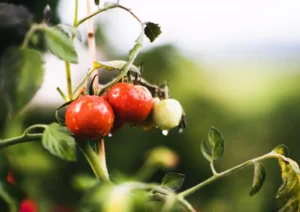
Early Detection Is Key
Thankfully, tomato plants can recover quickly if you take action. However, as with almost all plant issues and pests, the earlier you detect a problem, the better
Catching an aphid infestation when it is just beginning is a lot easier to eradicate than one that has had time to multiply for several days. Take a walk in your garden every few days. Look each plant over carefully, being sure to lift up several leaves and look for any signs of aphids or their damage.
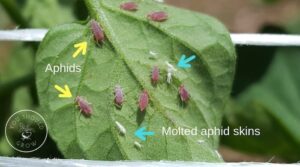
If you do find a problem, there are some simple and yet highly effective ways to get rid of aphids – and a few more that can help them from ever becoming an issue in the first place. With that in mind, here is a look at 4 simple ways to control aphids on your tomato plants!
Spraying Off Aphids
When you find aphids, the first line of defense is to get out your hose and remove them with a spray of water! It is actually amazing how quickly this can work to effectively control a mild to average invasion of aphids.
Using a strong spray of water is usually enough to knock aphids off of your tomato plants.
Since aphids are so tiny, they are easily dislodged from the plant tissue and will just fall to the ground with a strong spray of water. Typically, they are unable to climb back up the plant and will die before they get the opportunity.

When using a spray of water, don’t use one that is so strong that you end up damaging the plant tissue. Keep in mind that the water might knock off a few blooms or small tomatoes as well. Test a small area first before going to town on the entire plant to make sure the spray isn’t too strong.

If you don’t want to use the water spray, pick the aphids off by hand and smash them to kill them. This method works best for smaller infestations as opposed to ones that need a bit more work.
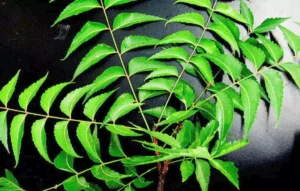
Using Neem Oil – How To Keep Aphids Off Tomato Plants
If the infestation is bad enough, water might not be enough to totally eradicate your aphid issue. But you can still stay organic in your approach using neem oil.
Neem oil is created by pressing the seeds of neem trees. It is 100% organic and safe when used properly around pollinators and other beneficial insects. You can usually find concentrate solutions in your garden centers or online.
You can mix neem oil with water and then apply it to the leaves of your tomato plants with a small hand-held spray bottle. Be sure to coat the undersides of the leaves where the aphids tend to hide out. Depending on how severe the infestation is, you may need a couple of applications for total control.

DISH SOAP LIQUID MAKES A GREAT APHID REMOVER
For a more in-depth look at the benefits of using neem oil as well as how to use it, be sure to check out our article “How To Use Neem Oil On Plants – Control Pests Organically!”
Attract Predatory Insects – How To Keep Aphids Off Tomato Plants
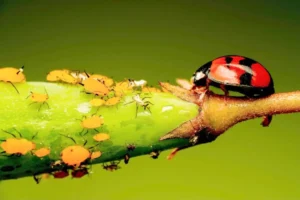
Another excellent and all natural way to control aphids on your tomato plants is to attract predatory insects to your garden space. In fact, this is really the most natural and easy method for control of all!
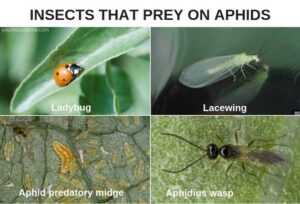
Many different types of insects will eat aphids at all stages of their lives. Insects such as ladybugs, lacewings, and parasitic wasps are all excellent insects to have around your garden space. While they likely won’t be able to handle a large infestation, they are excellent for keeping smaller ones in check and from becoming out of hand.
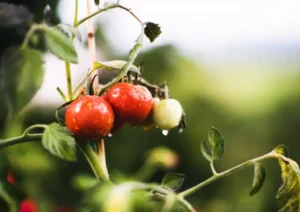
Carrot blooms are perfect for attracting useful parasitic wasps.
To help attract ladybugs and lacewings, grow plants that are a good source of pollen, which is one of their food sources. Plants like dill, fennel, yarrow, marigolds, calendula, and sweet alyssum are all great choices for attracting ladybugs.
Using Companion Crops – How To Keep Aphids Off Tomato Plants
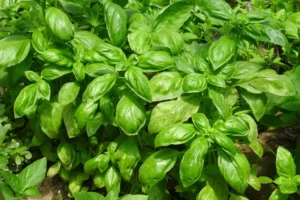
Basil is a good plant to grow near your tomato bushed to ward off aphids
Last but not least, one of the best ways to keep aphids from getting on your tomato plants is to keep them from ever wanting to visit in the first place. And the best way to do that is with companion planting!
There are certain plants and flowers that aphids dislike. By planting and growing those plants around or near your tomato plants the aphids will stay far away.
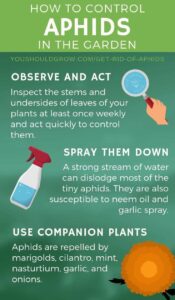
Plants like marigolds, mint, or cilantro all help keep aphids away in part due to their strong scent. Grow them as close to the tomato plants as possible to be most effective. If you do not want to grow them in the ground, you can plant them in containers and sit them right near your tomato plants.
Other crops can be used as a trap crop to lure aphids away from your tomato plants. Nasturtiums and sunflowers are two of the best for this. They help to attract the aphids away from the tomato plants and onto themselves.
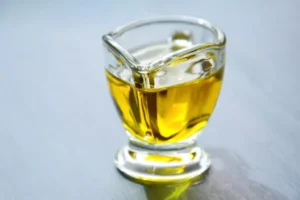
USE VEGETABLE OIL AS WELL
A home remedy for aphids on tomato plants
Home improvement expert Bob Vila recommends making your own insecticidal spray by mixing 1 tablespoon regular dish soap with 1 quart of water. Apply the mixture with a garden sprayer to your plants every day or two until your aphid infestation disappears.
Nasturtiums are not only pretty, but they are perfect for deterring aphids.
Sunflowers work great because they are so large and can really handle big infestations without much damage. And, of course, they only add more beauty around your garden!
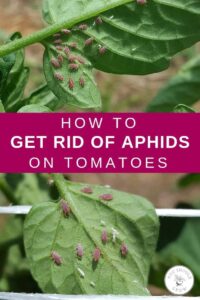
Both sunflowers and nasturtiums are also good for helping to attract pollinators and some predatory insects that feast on aphids. Here is to keeping your tomato plants (and all your vegetable plants) safe from aphids this year!
I HAVE A LARGE VARIETY OF TOMATO SEEDS 4 SALE ON THIS SITE.ENJOY.!
 Any questions or if buying, contact me HERE
Any questions or if buying, contact me HERE
![]()

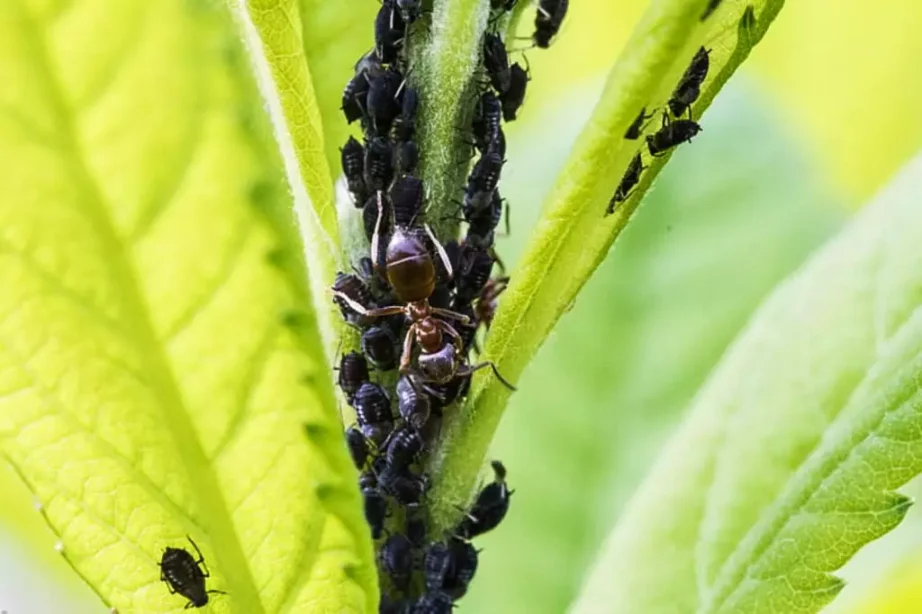
Recent Comments